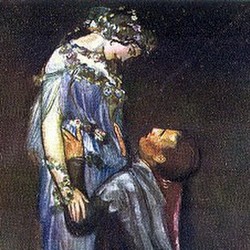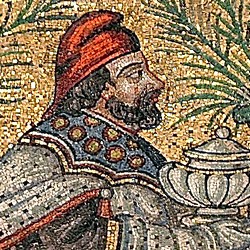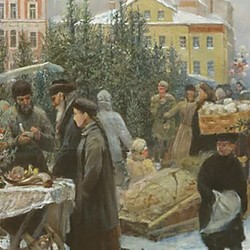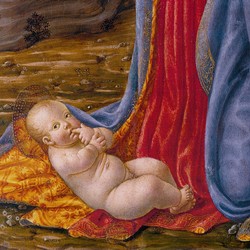- Details

Which thirty-seven-old composer would be invited nowadays by the Berlin Philharmonic to conduct a programme with his own works? After the success achieved in Germany a couple of years earlier with his Third Symphony, Charles Villiers Stanford offered on 14 January 1889 a concert in Berlin where his Fourth Symphony and his Suite for violin and orchestra were premiered; the violinist was no more, no less, than the great Joseph Joachim.
- Details

Matthew the Evangelist briefly tells us about the wise men who came to Bethlehem to worship Mary's baby and offer him gifts, and tradition has completed the missing information: the wise men are three, they are kings, richly dressed, they travel riding camels and are accompanied by pages. Poets have also spoken of them; sometimes in good-humoured tone, such as Goethe (a delightful poem that Wolf turned into a delightful Lied), sometimes with simple devotion, as found in Heinrich [...]
- Details

The barrel organ was a musical instrument very usual in the streets in the late 19th and early 20th centuries. His popularity had three main reasons: it could be moved easily because it had wheels, its music could be heard at a distance and, most important, there was no need to read music to play it. The main part of the barrel organ was a metallic cylinder where the melodies were carved, and the performer only had to turn a crank; the mechanics of the device made the rest (it [...]
- Details

The first Christmas song we heard on this blog, in December 2012, was the superb Geistliches Wiegenlied, by Johannes Brahms, a song that the composer dedicated in 1863 to his godson, the son of violinist Joseph Joachim and contralto Amalie Schneeweiß. He chose the text from the Geistliche Lieder [Sacred Songs] of the Spanisches Liederbuch [Spanish Songbook] by Emmanuel Geibel and Paul Heyse; it was the German version of a poem by Lope de Vega. In March 1941 a song by [...]
- Details

Children think covering their eyes make them invisible, and adults avoid mentioning unpleasant, unavoidable things, as this could make them disappear. That explains the name Modest Mussorgsky thought for the cycle he was writing, Ona; that's to say, Her, a way often used in Russia to refer to death (smert has feminine genre) at a time when mortality was extremely high. The songs were defined by the composer as a Danse Macabre, referring to the medieval allegory on the universality of [...]













